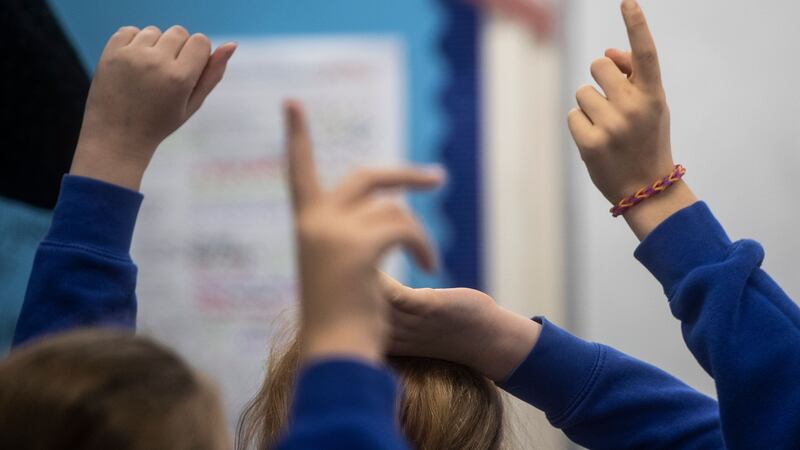Disadvantaged primary school pupils remain months behind their peers in reading and mathematics skills after Covid-19, a report suggests.
The attainment gap between Year 3 and 4 pupils eligible for free school meals and their peers is wider than before the pandemic, according to the National Foundation for Educational Research (NFER) study.
But the research suggests that the learning gap suffered by young pupils as a result of the Covid-19 pandemic is starting to narrow.
The NFER study found that the difference between reading and maths scores of Year 3 and 4 pupils in the spring term of 2023 compared to those before Covid-19 pandemic is smaller.
The research – funded by the Education Endowment Foundation (EEF) – has followed more than 6,000 pupils who were in Reception and Year 1 in March 2020 when the first set of school closures took place.
It tracks the estimated “Covid-19 gap” and “disadvantage gap” over time, with the most recent assessment in spring 2023, to gain an understanding of pupils’ attainment as a result of the pandemic.
The data suggests that in spring this year there was no significant difference in Year 3 pupils’ reading and Year 4 pupils’ maths performance compared to the pre-pandemic pupil sample.
For both reading and maths, in Years 3 and 4 – where pupils are aged seven to nine – the Covid-19 gap significantly reduced compared with spring 2021 and spring 2022, according to the report.
But the study found that Year 3 and 4 pupils eligible for free school meals were estimated to be around seven months behind their more well-off peers for reading in spring 2023.
These gaps have not decreased since spring 2021 and remain wider than gaps before the pandemic.
Meanwhile, the disadvantage gaps for maths in spring 2023 for Year 3 and 4 were estimated to be around six months – significantly down on spring 2021 but still wider than gaps before the pandemic.
Ben Styles, head of classroom practice and workforce at NFER, said: “It is encouraging that three years on from the first school closures, there are real signs of improvement in both the reading and maths performance of Year 3 and Year 4 pupils.
“Schools have been working tirelessly following the pandemic to put strategies in place to support pupils’ learning recovery.
“Our evidence suggests there should be a greater focus on very low-attaining pupils and closing the disadvantage gap. It is essential that schools are both adequately funded and supported to do so using evidence-based approaches. This will be required over the long term.”
Schools that reported disruption to learning gave the most common reason as being related to pupils’ behaviour and wellbeing – a much more commonly reported challenge than in previous years.
They also reported “insufficient funding” to support pupils who had missed learning, the report said.
Paul Whiteman, general secretary for school leaders’ union NAHT, said: “Schools have been working incredibly hard to address gaps in pupils’ learning following Covid and it’s encouraging to see the positive impact of that work on many young people.
“Clearly, there remains more work to do and there should be a real focus on pupils from disadvantaged backgrounds so that the attainment gap is narrowed. This will require significant effort and resources.
“The Government need to support this effort by investing more into education, social services, and crucially – as this report highlights – mental health services for children and young people.”
Geoff Barton, general secretary of the Association of School and College Leaders (ASCL), said: “It’s clear that events over the last few years, including the cost-of-living crisis, have taken a major toll on children and young people, with those living in poverty the most severely impacted.
“Although they are doing everything they can to help all children succeed, primary schools are particularly poorly funded and the disadvantage gap will continue to persist unless there is significant, targeted intervention.”
A Department for Education spokesperson said: “We’re pleased to see that pupils are continuing to catch up on learning following the pandemic. We have made £5 billion available since 2020 for education recovery initiatives, which have supported millions of pupils in need of extra support.
“We are also supporting disadvantaged pupils through the pupil premium, which is rising to almost £2.9 billion in 2023-24, the highest in cash terms since this funding began. This is on top our ongoing £10 million Behaviour Hubs programme and £9.5 million for up to 7,800 schools and colleges in to train a senior mental health lead.”








